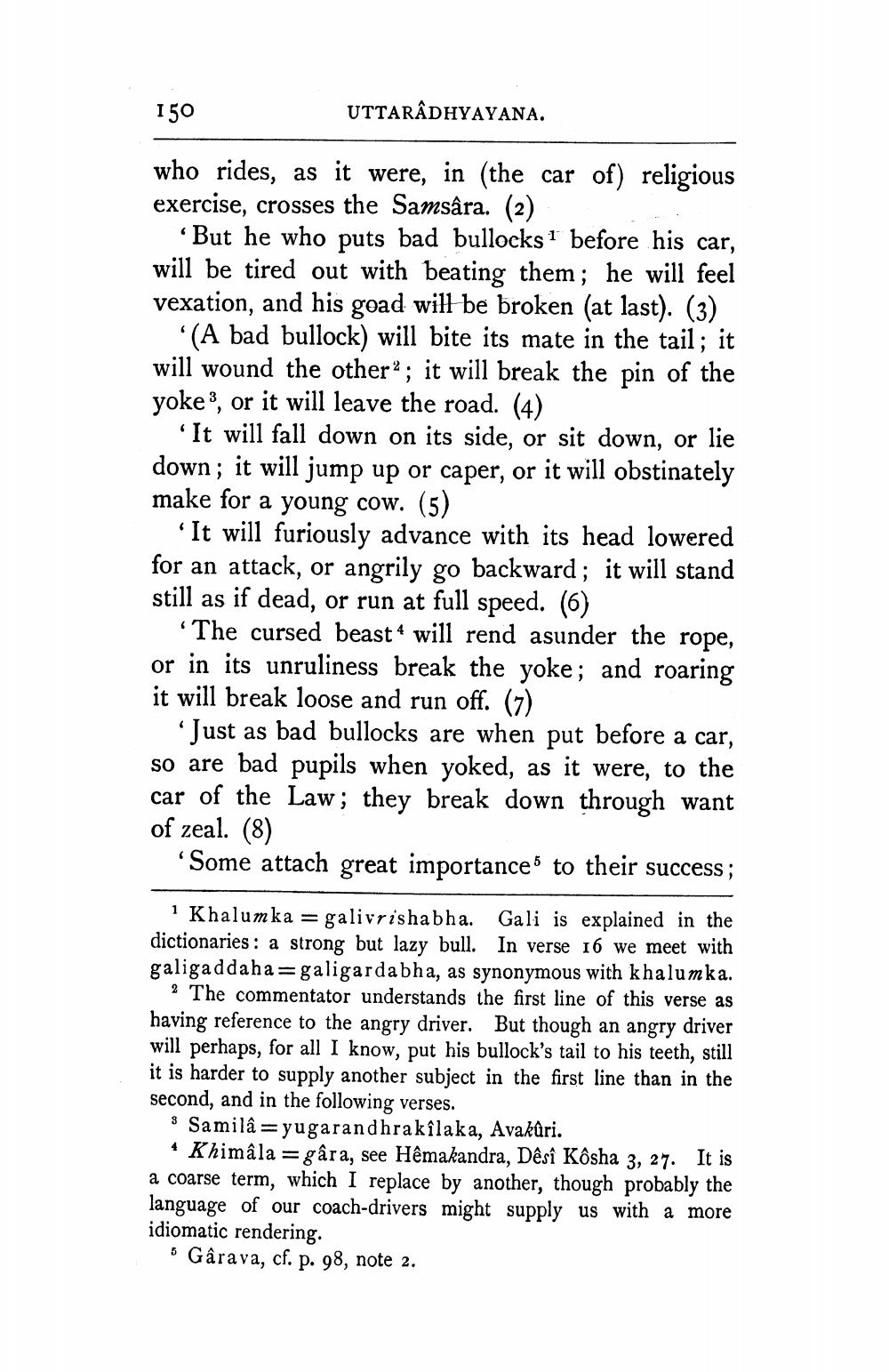________________
150
UTTARÂDHYAYANA.
who rides, as it were, in (the car of) religious exercise, crosses the Samsara. (2)
But he who puts bad bullocks 1 before his car, will be tired out with beating them; he will feel vexation, and his goad will be broken (at last). (3)
'(A bad bullock) will bite its mate in the tail; it will wound the othera; it will break the pin of the yoke 3, or it will leave the road. (4)
'It will fall down on its side, or sit down, or lie down; it will jump up or caper, or it will obstinately make for a young cow. (5)
'It will furiously advance with its head lowered for an attack, or angrily go backward; it will stand still as if dead, or run at full speed. (6)
'The cursed beast * will rend asunder the rope, or in its unruliness break the yoke; and roaring it will break loose and run off. (7)
Just as bad bullocks are when put before a car, so are bad pupils when yoked, as it were, to the car of the Law; they break down through want of zeal. (8)
'Some attach great importances to their success;
1 Khalumka = galivrishabha. Gali is explained in the dictionaries: a strong but lazy bull. In verse 16 we meet with galigaddaha=galigardabha, as synonymous with khalumka.
2 The commentator understands the first line of this verse as having reference to the angry driver. But though an angry driver will perhaps, for all I know, put his bullock's tail to his teeth, still it is harder to supply another subject in the first line than in the second, and in the following verses.
3 Samilâ=yugarandhrakilaka, Avakûri.
* Khimâla = gâra, see Hêmakandra, Dêsî Kôsha 3, 27. It is a coarse term, which I replace by another, though probably the language of our coach-drivers might supply us with a more idiomatic rendering.
• Gârava, cf. p. 98, note 2.




